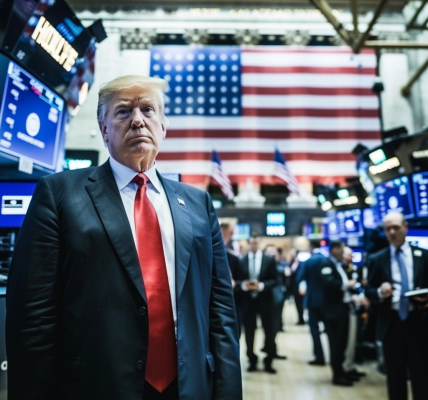In the evolving landscape of global politics, the implications of a potential Donald Trump victory in the upcoming U.S. elections are becoming a focal point of discussion, particularly regarding the impact on China and Australia. Analysts are increasingly concerned that such an outcome could lead to a shift in the balance of power in the Asia-Pacific region, emboldening China while isolating Australia.
As the world watches closely, the geopolitical dynamics are shifting. A Trump presidency is likely to adopt an ‘America First’ approach, which may prioritize U.S. interests at the expense of traditional alliances. This could create a vacuum in leadership that China is poised to fill, potentially expanding its influence throughout the Asia-Pacific region.
Historically, the United States has played a crucial role in maintaining stability and security in this area. However, a return to Trump’s policies could signal a departure from multilateral engagements, which have long been a cornerstone of U.S. foreign policy. Such a shift may lead to a more aggressive posture from China, as it seeks to assert its dominance over regional affairs.
Experts warn that if the U.S. retreats from its commitments, countries like Australia could find themselves increasingly isolated. Australia has relied on the U.S. as a key ally in countering Chinese expansionism, particularly in the South China Sea and the broader Indo-Pacific region. A Trump administration might prioritize bilateral agreements that could sideline Australia and other allies, leaving them vulnerable to Chinese influence.
Moreover, the economic implications of a Trump victory could further complicate matters. Trade relations with China, already strained, could become more contentious. Trump’s previous administration saw significant tariffs imposed on Chinese goods, which led to retaliatory measures from Beijing. An escalation of trade tensions could impact Australia’s economy, which is heavily reliant on exports to China.
Australia’s strategic position in the Indo-Pacific makes it a critical player in countering Chinese ambitions. However, without robust support from the U.S., Australia may struggle to navigate the complex geopolitical waters ahead. The potential for increased Chinese military activity in the region could necessitate a reevaluation of Australia’s defense strategies and alliances.
In addition to military and economic considerations, the ideological battle between democracy and authoritarianism is at stake. A Trump presidency may embolden autocratic regimes, including China, by signaling a retreat from democratic values and international norms. This could have far-reaching consequences for global governance and the promotion of human rights.
The ramifications of a Trump victory extend beyond immediate political and economic concerns. The long-term strategic landscape could be reshaped, with China potentially gaining a stronger foothold in the region. This shift could lead to increased tensions and conflicts, as nations grapple with the implications of a more assertive China.
As the elections draw nearer, the international community is keenly observing the developments in the U.S. Political analysts emphasize the importance of a stable and consistent U.S. foreign policy, particularly in relation to key allies like Australia. The future of the Asia-Pacific region may depend on the outcome of the upcoming elections and the subsequent foreign policy direction taken by the United States.
In conclusion, the potential for a Trump win raises critical questions about the future of U.S. foreign policy and its impact on global alliances. With China poised to capitalize on any perceived weakness from the U.S., the implications for Australia and the broader Asia-Pacific region are significant. As nations navigate this uncertain landscape, the importance of strategic partnerships and a commitment to democratic values remains paramount.





